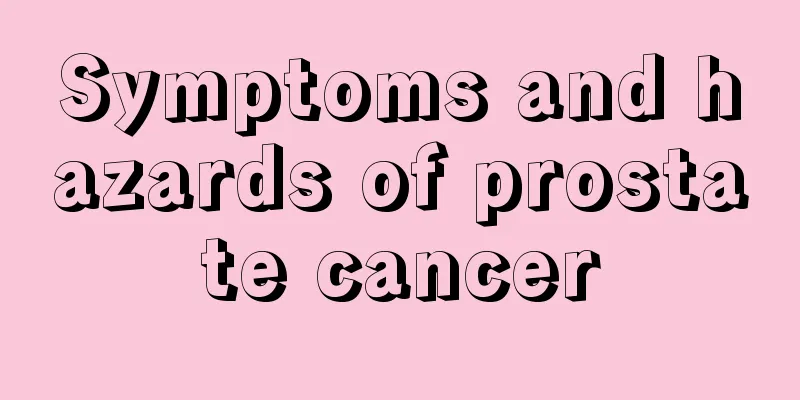You need to know the early symptoms of tongue cancer

|
Tongue cancer is the most common oral cancer, more common in men than in women. Most tongue cancers are squamous cell carcinomas, especially in the front 2/3 of the tongue. Adenocarcinomas are less common and are mostly located at the root of the tongue. Lymphoepithelial carcinoma and undifferentiated carcinomas can also occur at the root of the tongue. Tongue cancers often occur at the edge of the tongue, followed by the tip, back and root of the tongue, and are often ulcerative or infiltrative. Generally, the malignancy is high, the growth is fast, and the invasion is strong. It often affects the tongue muscles, resulting in limited tongue movement, making it difficult to speak, eat, and swallow. Tongue cancer can invade the palatoglossal arch and tonsils backwards. In the late stage, tongue cancer can spread to the floor of the mouth and the jawbone, fixing the entire tongue. There are relatively few people who suffer from tongue cancer in life. Therefore, people know very little about this disease. Once they suffer from tongue cancer, many people are confused. Because there is no vigilance against tongue cancer, it brings a sudden shock to those who discover it in the late stage, and treatment becomes much more difficult. If the early symptoms of tongue cancer can be discovered in time, the consequences may not be so serious. Early detection of tongue cancer symptoms 1. Sudden onset of increased salivation, drooling, bloody nasal discharge, choking sensation when swallowing, maxillofacial lumps and swollen lymph nodes, which persist and even gradually worsen; 2. Sudden loosening and falling of teeth, poor occlusion when chewing food, discomfort of dentures for those with dentures, numbness and pain in the mouth and pharynx. These early symptoms of tongue cancer do not improve after general symptomatic treatment. 3. Sudden onset of limited tongue movement, slurred speech, pain when speaking and swallowing; localized thickening and scaling of the lip mucosa, accompanied by grayish-white keratotic plaques; 4. Mucosal erythema, edema, erosion, white spots, fissures, flat tongue lichen, ridges and granular granulations suddenly appear in the oral cavity. Subjectively, the symptoms are extremely insensitive, but after 2 to 4 weeks of treatment, these early symptoms of tongue cancer will not only not heal, but will gradually spread and grow larger; 5. If ulcers often occur on the oral mucosa, and they cannot be cured for a long time, and the mucosa is dull, or there are indescribable bulges, such as tumors and hyperplasia, etc., you should be alert and go to the hospital for examination in time, because these may be early symptoms of tongue cancer. Persistent tongue pain and unexplained swelling of the lymph nodes in the neck are early symptoms of tongue cancer. However, many patients ignore the symptoms and delay seeking medical treatment. Late-stage tongue cancer may require radiotherapy or even removal of cancer cells on the tongue, which can damage the ability to speak and swallow normally. |
<<: Will renal hamartoma continue to grow?
>>: Is renal hamartoma surgery risky?
Recommend
What color is cervical cancer bleeding
The color of bleeding from cervical cancer is usu...
How to effectively prevent the occurrence of liver cancer? Pay attention to 3 details in your diet to prevent liver cancer
To prevent liver cancer, you must first control y...
What are the sequelae of chemotherapy for ovarian cancer
Ovarian cancer is one of the most common malignan...
Is it okay to stand after eating
We cannot skip any of the three meals a day. If w...
Is hepatitis B contagious? What are the ways?
Everyone should be familiar with hepatitis B, esp...
What is the best way to lower cholesterol?
Nowadays, more and more people have high choleste...
What are the symptoms of high purine and how to treat it
Many people suffer from uricemia, arthritis, etc....
How to improve skin quality
People's skin quality will gradually change w...
A high-calorie diet can easily lead to prostate cancer
The occurrence of cancer has a great impact on th...
Is it good to wear shapewear regularly
Nowadays, more and more people love beauty, but n...
What shampoo doesn't cause hair loss
Some people become particularly distressed becaus...
What lubricant is good for sex?
Under normal circumstances, when a couple or love...
The benefits of wearing jade on the neck
We often see people around us wearing a piece of ...
There are six benefits of salt water foot bath
Soaking your feet in salt water has benefits and ...
What are the main causes of cervical cancer?
Cervical cancer is a common disease around us. Ma...









